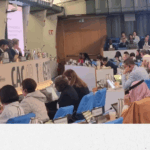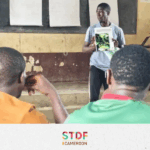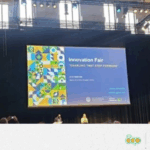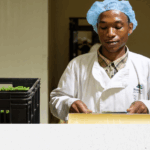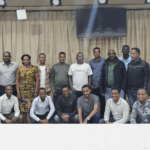IICA-COLEAD Caribbean Agrifood Business Session n°8
- 20/03/2023
- Posted by: Sandra Borma
- Category: ACP EN
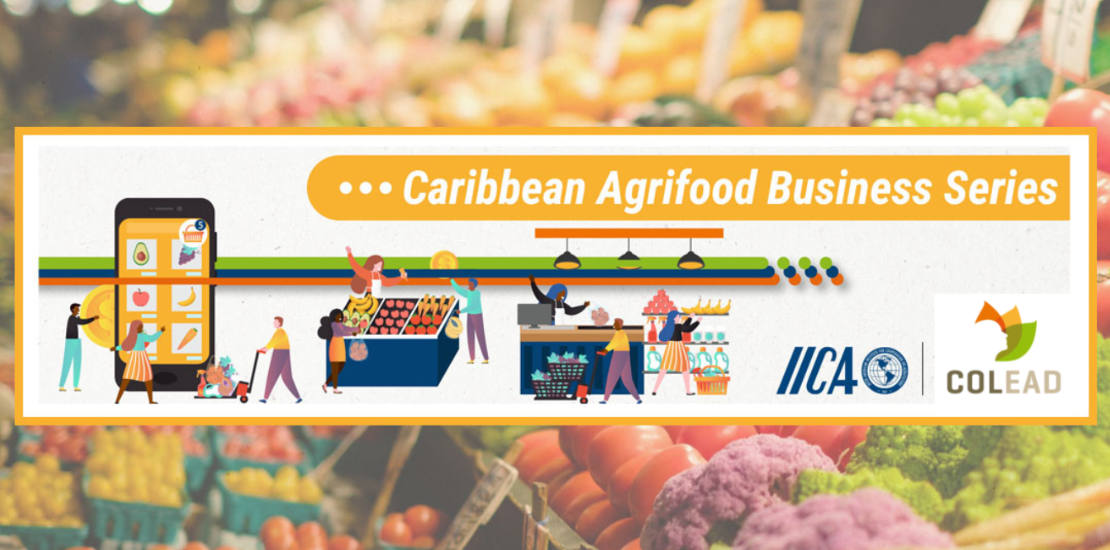
Four inspiring Caribbean women entrepreneurs presented on their successes as businesses operating in the agrifood sector of the Caribbean in the Caribbean during the 8th session of the Caribbean Agrifood Business Series organised by the Inter-American Institute for Cooperation on Agriculture (IICA) and the COLEAD on 23 February 2023. The online session was attended by around 200 participants from the Caribbean region, Africa and Europe. The recordings of the session will be available in English, French, Spanish and Portuguese on the COLEAD’s YouTube channel.
Link to programme in : English; French; Portuguese ; Spanish.
Find the Biodata in : English; French; Spanish.
Women make significant contributions to agriculture and the agrifood sector, and more broadly to the rural economy in all world regions. They are substantial entrepreneurial force at all stages of the value chain, from farm to fork, and in all markets, from local to international. Women create jobs, contribute to the economic growth of their countries and region and support food and nutrition security.
Jeanette Marcelle is the Founder and CEO of agri-food processing company Handmade by Jeanette Co. (HBJ), based in Trinidad and Tobago, that produces healthy granola, sauces and spices mixes using locally grown products. The company operates according to business practices that are beneficial to the environment, including those that reduce waste in the agriculture sector, and supports small farmers in the community who supply raw material.
Anastasha Elliot is the Co-Founder and CEO of the agri-food social enterprise Sugar Town Organics., based in St. Kitts and Nevis. The company creates authentic and healthy Caribbean products that are sold under four different product lines: Marapa – a premium line of botanical skin care products; Yaphene – a line of botanical care products; Baba’s Lullaby – a nutrient rich and Caribbean-infused baby care line; and Flauriel – a vegan food line of healthy condiments, sauces, snacks and wines. Sugar Town Organics sources raw materials from its own mini-farm, in addition to working with local farmers. Its products are sold locally and exported throughout the Caribbean, United States, European Union, United Kingdom and Taiwan.
Shondel Abby Alexander, is the Founder and Owner of Abby’s Exotic Blends that produces various flavours of high quality vegetable chips and (non-)alcoholic beverages. The award-winning St. Lucian agro-processing company meets all industry quality standards and aims to incorporate environmentally friendly practices in its production cycle to limit wastage and preserve energy consumption, all while ensuring the best tasting products. Its products are sold throughout Saint Lucia and are exported to neighbouring islands.
Noella Ruiz is the Founder and CEO of Empresas Noelia Ruiz Srl that adds value to all products of beehives. The company based in the Dominican Republic is dedicated to the conservation of the environment and is driven by the aim of developing beekeeping as a prosperous and essential economic activity. The business supports beekeeping producers in three provinces, where it provides them training and workshops and supports the social and economic inclusion of women beekeepers.
It is key to support women-led micro, small and medium-sized enterprises (MSMEs) in developing their (business) activities as they play a crucial role in the agriculture sector for sustainable economic growth and development in the Caribbean. . Many organisations, such as IICA and the COLEAD, provide support to women-led and women-empowering companies including through targeted technical assistance, capacity building and networking. The 8th session of the Caribbean Agrifood Business Series has featured three experts who are contributing to building an enabling environment for women entrepreneurs:
Tonni Brodber, Representative of the UN Women Multi-Country Office in the Caribbean, presented the work being conducted and the resources created to support economic empowerment for gender equality in the Caribbean region. These efforts target the low rate of women self-employment in the Caribbean, and the lower likelihood that women own a business in comparison to men. The projects, tools, knowledge resources and groups created were discussed within the framework of the empowerment cycle, which comprises six key factors: skill set, agency and decision making, access to resources, dignity, social protection and access to justice.
Carmen Nurse is President of the Caribbean Network of Rural Women Producers (CANROP), a network that represented rural women agricultural producers and processors throughout the Caribbean. Its mission is to promote and support the efforts of the national chapters of the network through training and informing them on how to achieve sustainable SME development and rural prosperity. CANROP envisions its role as a rural woman transparent institution that contributes to the development of the Caribbean agricultural sector, and in doing so, generates income to support food and nutritional security, reduction of poverty and the improvement of rural livelihoods.
Priscila Zúñiga Villalobos, Gender Equity and Youth Programme Manager at IICA, discussed the intersectionality of rural women and how their varied roles in the Caribbean and Latin America contribute to agri-food systems. She details the barriers and challenges to rural women, including those that were wrought in particular during the COVID-19 pandemic. To address these challenges, IICA has enacted a Gender Equality and Youth Programme, and promotes rural women’s participation in business to ensure equal opportunities in the economy.
The IICA-COLEAD Caribbean Agrifood Business Series focuses on innovations and successes of Caribbean farmer-led businesses and SMEs. This activity is supported by the Fit For Market Plus programme, implemented by the COLEAD within the Framework of Development Cooperation between the Organisation of African, Caribbean and Pacific States (OACPS) and the European Union.

